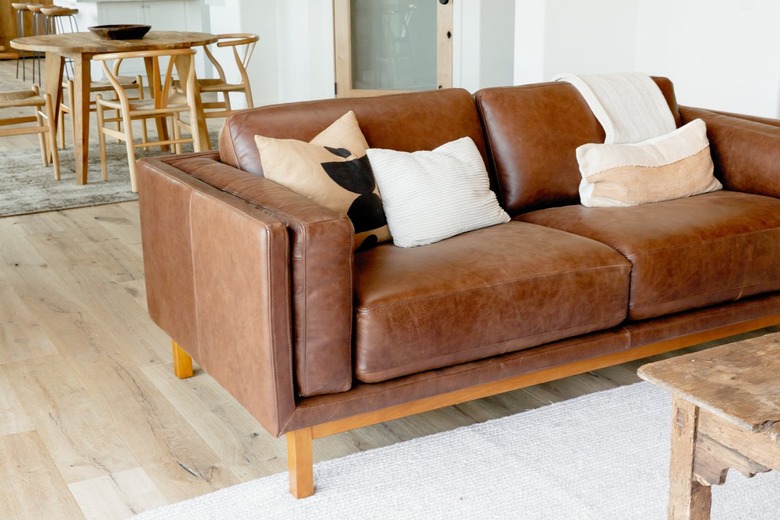How To Clean Mold And Mildew Off A Leather Couch
We may receive a commission on purchases made from links.
If you spot mold or mildew on your sofa, it is important to remove it as soon as possible. Not only will mold damage the fabric but it could also cause health issues. Mold is also very hard to remove once it is caked into the fabric. These cleaning tips and tricks will help you remove icky mildew from your leather couch and keep your furniture safe from future stains.
How to Remove Mildew From a Leather Couch
How to Remove Mildew From a Leather Couch
In most cases, excessive humidity, poor insulation, and leaky ceilings are the main reasons that mold and mildew form on furniture. If you are dealing with mold on your couch, first put on a mask and some gloves and take your furniture outside. Exposing the fabric to sunlight can help remove moisture from it. Also, the sunlight has a natural bleaching effect, which can help to fade mold stains. Use a brush or a similar tool to scrub off as much of the mold as you can. Then, use the upholstery attachment of your vacuum to sweep away any excess.
Next, mix 1 part vinegar and 1 part water in a spray bottle. Vinegar is very effective at killing mildew and mold and may even prevent their growth in some cases. Before spraying the mold, test a small, hidden area of your couch to ensure that the solution will not damage your furniture. Lightly spray the affected area, taking care to ensure that the fabric does not get too damp. Rinse off the fabric with cold water once the mold has been removed. Then, let everything air dry, either outdoors or in a very well-ventilated area.
How to Prevent Mold on a Leather Couch
How to Prevent Mold on a Leather Couch
Of course, it is easier to prevent mold and mildew stains than it is to remove mildew from a leather couch. Follow some tried and true mold prevention methods:
- To prevent bacteria from growing, make sure that your home (especially the room where your couch is located) is well ventilated. Open windows and doors to promote air circulation, especially while cooking or after a shower. This is especially important during the hot, humid summer months.
- Use a dehumidifier. This is a great way to remove moisture, which reduces the chance of mold growth on your furniture.
- Fix plumbing leaks as soon as possible.
- Do what you can to make sure that rainwater does not seep into your home.
